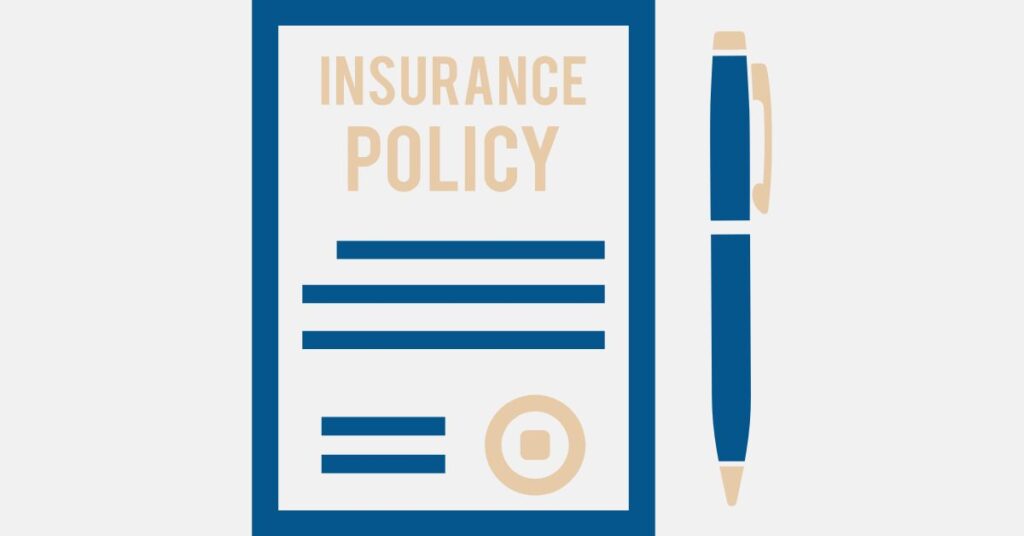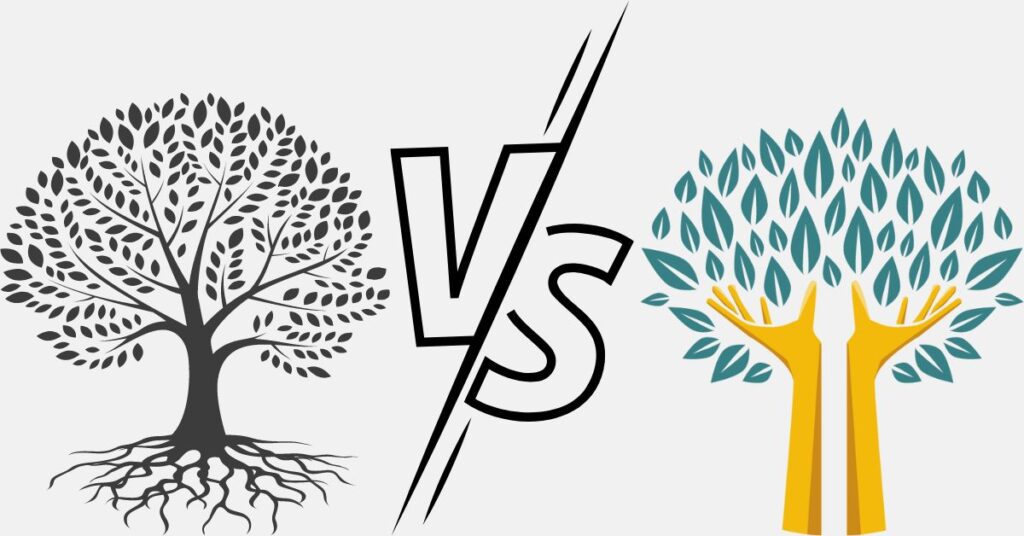Whole Life vs Term Life A Comprehensive Guide To Know Before Using Your Money
Life insurance is a contract between an individual and an insurance company in which the insurance company agrees to pay a death benefit to the individual’s designated beneficiaries upon the individual’s death in exchange for the payment of premiums. Life insurance is designed to provide financial protection for your loved ones in the event of your unexpected death to ensure they are not financially burdened.
Whole life and term life: Life insurance can be divided into two main categories: whole life and term life. Whole life insurance, also known as permanent life insurance, provides lifelong coverage and builds cash value over time. On the other hand, term life insurance provides coverage for a specific time and does not build cash value. The purpose of this blog post is to provide a comprehensive comparison of whole life and term life insurance and to help you understand the key differences between the two.
We will cover the pros and cons of each type of insurance and provide tips on determining which type of life insurance is best for you and your loved ones. By the end of this post, you will have a clear understanding of the options available and will be equipped with the knowledge necessary to make an informed decision about life insurance. It’s important to remember that life insurance is not one-size-fits-all, and the best policy for you will depend on your individual needs and circumstances.
By understanding the different types of life insurance available, you can make a decision that will provide you and your loved ones with the financial protection you need. Whether you go with whole life or term life insurance, you can have peace of mind knowing that you have taken steps to ensure that your loved ones will be taken care of in the event of your unexpected death.

Whole Life Insurance
Whole life insurance, also known as permanent life insurance, is a type of life insurance that provides coverage for the entirety of an individual’s life. It is characterized by its guaranteed death benefit, the amount the insurance company will pay to the designated beneficiaries upon the individual’s death. Additionally, whole life insurance policies also build cash value over time, which can be borrowed against or used to pay premiums.
Advantages of whole life insurance:
- One of the main advantages of whole life insurance is that it provides a guaranteed death benefit to the individual’s designated beneficiaries. This means that the death benefit will be paid out as long as the individual continues to pay their premiums. Upon their death, regardless of when that may be. This provides peace of mind for the individual and their loved ones, knowing they will be financially protected in the event of the individual’s unexpected death.
- Another advantage of whole life insurance is that it builds cash value over time. This cash value can be borrowed against or used to pay premiums, providing the individual additional financial flexibility. This can be particularly beneficial for individuals who may experience financial difficulties in the future, as they can use the cash value to help cover expenses.
- Whole life insurance policies typically have fixed premium payments, meaning that the individual’s premium payments will remain the same over the policy. This can make budgeting and financial planning more manageable, as the individual knows precisely what they will need to pay each month.

Disadvantages of whole life insurance:
- One of the main disadvantages of whole life insurance is that it is typically more expensive than term life insurance. This is because whole life insurance provides lifelong coverage and builds cash value, which is more expensive than the coverage provided by term life insurance.
- Another disadvantage of whole life insurance is that it is less flexible than term life insurance. Because whole life insurance provides lifelong coverage, the individual is locked into the policy for their entire life. This can make it challenging to adjust coverage as the individual’s needs change over time. Additionally, because the policy’s cash value is tied to the death benefit, withdrawing funds from it will decrease the death benefit.
Despite these disadvantages, whole life insurance can be an excellent option for individuals looking for lifelong coverage and those who want to provide long-term financial protection for their loved ones.
Additionally, a whole life insurance policy can be a good option for individuals who want to accumulate cash value over time and build an investment portfolio. However, individuals must weigh the pros and cons of whole life insurance and consider their unique needs and circumstances before deciding.

Term Life Insurance
Term life insurance is a type of life insurance that provides coverage for a specific period, or “term,” which is typically anywhere from 10 to 30 years. The individual pays a premium for the term; if they pass away within that term, their designated beneficiaries will receive a death benefit. If the individual is still alive at the end of the term, the coverage will expire, and the individual will not receive a death benefit.
Advantages of term life insurance:
- One of the main advantages of term life insurance is that it is typically less expensive than whole life insurance. This is because term life insurance only provides coverage for a specific period and does not build cash value, which is less expensive to provide than the lifelong coverage and cash value accumulation provided by whole life insurance.
- Another advantage of term life insurance is that it allows individuals to choose the term length that best suits their needs. For example, an individual looking to provide financial protection for their family while still raising children may choose a term of 20 years, while an individual nearing retirement age may prefer a period of 10 years.

Disadvantages of term life insurance:
- One of the main disadvantages of term life insurance is that the death benefit is not guaranteed. If the individual passes away outside the term, their designated beneficiaries will not receive a death benefit. Additionally, if the individual is still alive at the end of the term, the coverage will expire, and the individual will not receive a death benefit.
- Another disadvantage of term life insurance is that it needs to build cash value over time. This means that the individual cannot borrow against or use the cash value to pay premiums. However, this is an advantage, as it simplifies the product and makes it more affordable.
Despite these disadvantages, term life insurance can be an excellent option for individuals looking for temporary coverage and those who want to provide financial protection for a specific period. Additionally, term life insurance can be a good option for individuals on a tight budget and looking for an affordable life insurance option. However, individuals must weigh the pros and cons of term life insurance and consider their unique needs and circumstances before deciding.

Comparison of Whole Life and Term Life Insurance
Whole life insurance provides lifelong coverage, cash value accumulation, and fixed premium payments. Term life insurance provides temporary coverage, with no cash value accumulation and the flexibility to choose the term length.
Determining which type of life insurance is right for you:
- When choosing between whole life and term life insurance, one important factor is your age and life stage. Whole life insurance is a good option for individuals looking for lifelong coverage who want to build cash value over time. On the other hand, term life insurance is a good option for individuals looking for temporary coverage and on a tight budget.
- Another critical factor to consider is your financial goals and budget. Whole life insurance is typically more expensive than term life insurance, so it may not be the best option for individuals on a tight budget. However, if you have a long-term savings goal and want to build cash value over time, whole life insurance can be a good option.
- It’s also important to consider the needs of your beneficiaries when choosing between whole life and term life insurance. Whole life insurance is an excellent option to provide lifelong financial protection for your beneficiaries. On the other hand, if you want to provide temporary financial protection for your beneficiaries, term life insurance may be a better option.
Ultimately, the decision between whole life and term life insurance will depend on your unique needs and circumstances. It’s essential to consider your age and life stage, financial goals and budget, and the needs of your beneficiaries before making a decision. It’s also recommended to speak with a financial advisor, who can help you understand the differences between whole life and term life insurance and help you determine which option is best for you.

That’s A Wrap
This blog post discussed the main differences between whole life and term life insurance. We discussed the advantages and disadvantages of both types of insurance and how they can differ regarding coverage, cost, and cash value accumulation. We also discussed determining which type of insurance is right for you based on your age, financial goals and budget, and the needs of your beneficiaries.
It’s important to remember that the right type of life insurance will depend on your unique needs and circumstances. We encourage readers to consider their options carefully and to speak with a financial advisor to help them determine which type of life insurance is best for them. Many great resources are available for those who want to learn more about life insurance.
Websites such as the American Council of Life Insurers (ACLI) and the National Association of Insurance Commissioners (NAIC) provide information on the different types of life insurance and can help you find a financial advisor in your area.
The National Association of Personal Financial Advisors (NAPFA) provides information on financial advisors, including those specializing in life insurance. Additionally, books such as “The Ultimate Guide to Life Insurance” provide a comprehensive understanding of the topic.







